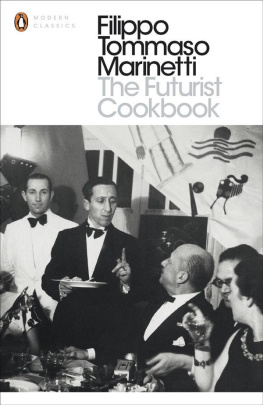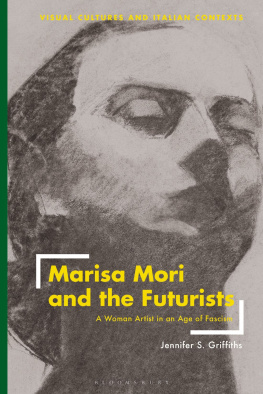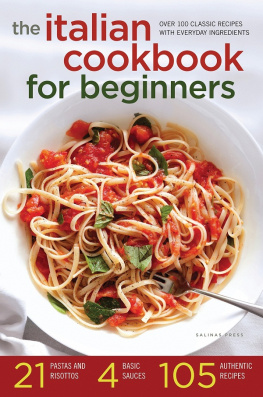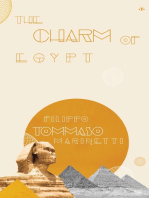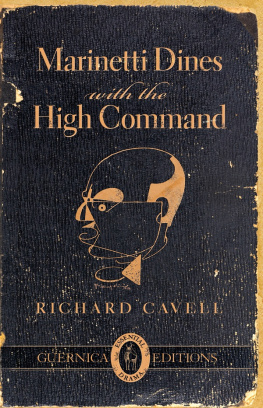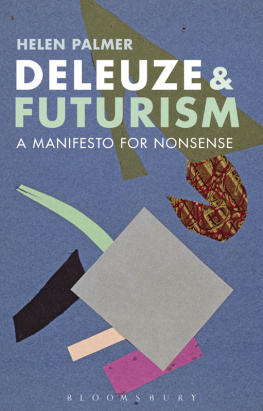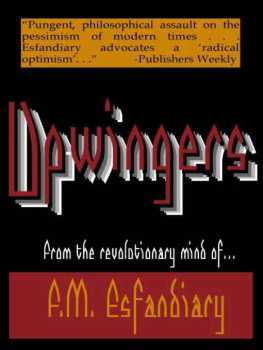Filippo Tommaso Marinetti - The Futurist Cookbook (Penguin Modern Classics)
Here you can read online Filippo Tommaso Marinetti - The Futurist Cookbook (Penguin Modern Classics) full text of the book (entire story) in english for free. Download pdf and epub, get meaning, cover and reviews about this ebook. year: 2014, publisher: Penguin Classics, genre: Home and family. Description of the work, (preface) as well as reviews are available. Best literature library LitArk.com created for fans of good reading and offers a wide selection of genres:
Romance novel
Science fiction
Adventure
Detective
Science
History
Home and family
Prose
Art
Politics
Computer
Non-fiction
Religion
Business
Children
Humor
Choose a favorite category and find really read worthwhile books. Enjoy immersion in the world of imagination, feel the emotions of the characters or learn something new for yourself, make an fascinating discovery.
- Book:The Futurist Cookbook (Penguin Modern Classics)
- Author:
- Publisher:Penguin Classics
- Genre:
- Year:2014
- Rating:5 / 5
- Favourites:Add to favourites
- Your mark:
The Futurist Cookbook (Penguin Modern Classics): summary, description and annotation
We offer to read an annotation, description, summary or preface (depends on what the author of the book "The Futurist Cookbook (Penguin Modern Classics)" wrote himself). If you haven't found the necessary information about the book — write in the comments, we will try to find it.
Part manifesto, part artistic joke, Fillippo Marinettis Futurist Cookbook is a provocative work about art disguised as an easy-to-read cookbook. Here are recipes for ice cream on the moon; candied atmospheric electricities; nocturnal love feasts; sculpted meats. Marinetti also sets out his argument for abolishing pasta as ill-suited to modernity, and advocates a style of cuisine that will increase creativity. Although at times betraying its authors nationalistic sympathies, The Futurist Cookbook is funny, provocative, whimsical, disdainful of sluggish traditions and delighted by the velocity and promise of modernity.
Filippo Tommaso Marinetti was born in 1876 to Italian parents and grew up in Alexandria, Egypt. He studied in Paris and obtained a law degree in Italy before turning to literature. In 1909 he wrote the infamous Futurist Manifesto, which championed violence, speed and war, and proclaimed the unity of art and life. Marinettis life was fraught with controversy: he fought a duel with a hostile critic, was subject to an obscenity trial, and was a staunch supporter of Italian Fascism. Alongside his literary activities, he was a war correspondent during the Italo-Turkish War and served on the Eastern Front in World War II, despite being in his sixties. He died in 1944.
Lesley Chamberlain is a novelist and historian of ideas. Her thirteen books include Nietzsche in Turin, The Secret Artist: A Close Reading of Sigmund Freud and The Food and Cooking of Russia.
Suzanne Brill is an art historian and writer. She has translated several books for Italian art historians including Caro Pedrettis Leonardo: Architect, which was nominated for the John Florio prize.
A paean to sensual freedom, optimism and childlike, amoral innocence ... it has only once been answered, by Aldous Huxleys Brave New World Lesley Chamberlain
Filippo Tommaso Marinetti: author's other books
Who wrote The Futurist Cookbook (Penguin Modern Classics)? Find out the surname, the name of the author of the book and a list of all author's works by series.

